Category:Voting

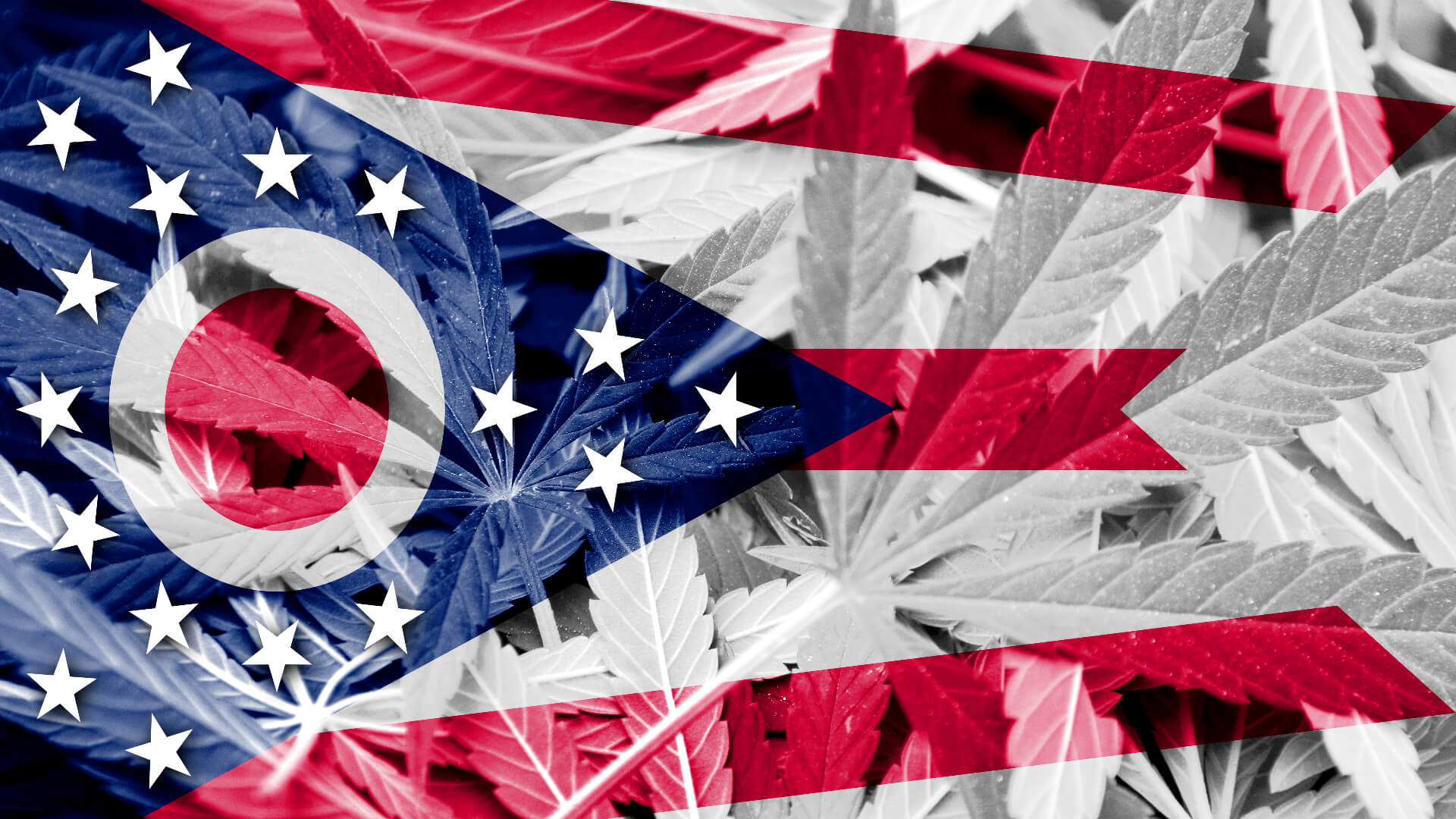
Ohio voted to legalize marijuana: here’s what you need to know
November 9, 2023 | Post
On November 7, 2023, voters in Ohio approved the Regulate Marijuana Like Alcohol initiative, listed on the ballot as Issue 2. With almost 57 percent of voters in favor, Ohio thus becomes the 24th state to legalize recreational marijuana. Now, let’s take a look at what happens next and what exactly the legalization of marijuana in Ohio will look like?

Liz Cheney proves we can’t trust the right to support free speech
May 13, 2021 | Post
Liz Cheney maintaining her position with the GOP was contingent on an unspoken agreement that she’d stop publicly disagreeing with Donald Trump over the validity of the 2020 election. Cheney did not do this. Instead, in her defiance, she has highlighted exactly why those who love and seek to protect freedom of speech shouldn’t count on the GOP or the right to maintain it.

Belarus: The Last Dictatorship in Europe?
April 28, 2021 | Video
Since the last presidential election in August 2020, Belarus has seen demonstrations, arrests, and even deaths of people fighting against Lukashenko’s government. Piotr Markielau is one of those people who are fighting for freedom in his own country but is constantly in danger. He’s been in prison five times, fears he is being followed, and has seen friends being locked up and beaten up.
The opposition’s demands are very fair. Free and fair elections, free political prisoners, and fair trials for all those who committed crimes against humanity in Belarus.
Students For Liberty has been supporting Piotr and his friends’ fight for freedom for years. To support them, you can call your countries’ embassies to Belarus and demand freedom of speech for Belarussians. Keep them accountable.
#FreeBelarus

The Brits are getting their freedom back. Well, some of it anyway.
June 26, 2017 | Post
The result of the UK elections is likely to force the government toward a “soft” Brexit.

Tocqueville’s Fear With Democracy: Soft Despotism
June 19, 2017 | Video
Alexis de Tocqueville feared that Americans would willingly give up freedom for a “soft despotism.” Full interview here.

Dan Carlin — We’re All Liberals (and Radicals)
April 10, 2017 | Video
Self-described radical Dan Carlin tells Dave Rubin why political labels suck. We’re all liberals, and we’re all mixed up. Watch the full interview
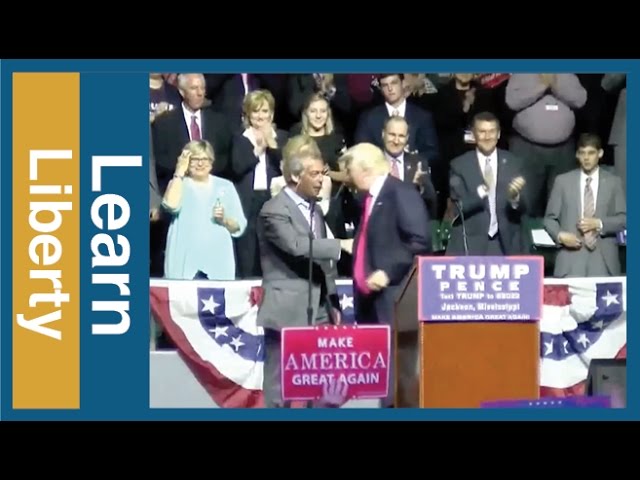
The Difference Between Trump and Brexit
January 27, 2017 | Video
Brexit and Trump’s election were both ways of “sticking the finger up to the establishment,” says the UK’s Dr. Joanna Williams — but the two votes were very different.

Finally, a libertarian defense of identity politics
January 3, 2017 | Post
Identity politics, usually portrayed as a spectre haunting liberalism, is actually key to understanding uprisings against state power.

Brexit Illustrates Why Voting Is One of the Worst Ways to Make Decisions
August 1, 2016 | Post
Nearly 25 years ago, two scholars—Geoffrey Brennan and Loren Lomasky—published a book that was proved prescient by the recent “Brexit” vote. The book was called Democracy and Decision, and one of its central theses was that “democracy” (if you mean majority rule decisions) is simply not up to the task of making good choices for […]

Your "Right to Vote" Includes a Right That Most People Don't Think About
June 11, 2016 | Post
There are many reasons to vote—or to decide not to vote. As we inch closer to November’s election, you might hear some of the common arguments in favor of voting: It’s your civic duty to vote Other people don’t have the right to vote, so you should exercise your right to vote People fought and died […]

IDK, Not Trump Tho: Donald Trump and Democracy
May 17, 2016 | Post
What’s the difference between a plurality and a majority in a democratic system? Professor Donald Boudreaux explains the huge difference in a recent post at Cafe Hayek by comparing the different voter preferences if Donald Trump wins 40 versus 60 percent of the votes in the Republican primaries. As Boudreaux writes: It’s a common (and […]
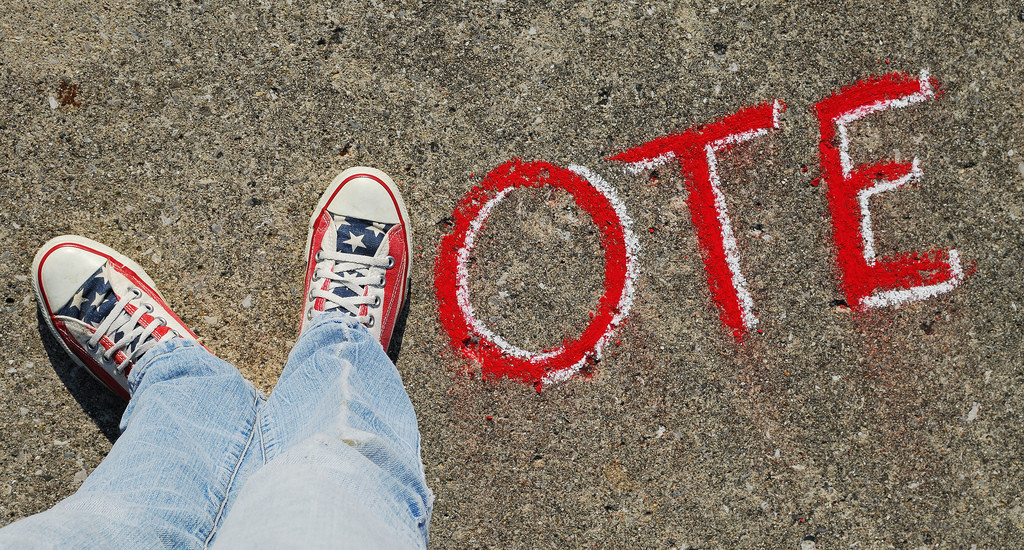
There’s One Perennial Complaint About Democracy. Here’s How to Solve It.
May 10, 2016 | Post
A perennial complaint about democracy in America is that too large a portion of the electorate is poorly informed about important political issues. This is the problem of the ignorant voter. This problem was exacerbated in the current presidential election cycle by the large number of candidates vying for the Republican nomination that made keeping […]

Election 2016 Is Here; Get Your Popcorn Ready
April 8, 2016 | Post
The 2016 presidential election season is in full swing: get your popcorn ready! As public choice economist, I absolutely LOVE this particular election season! Why, you might ask? I love this election because my training in public choice—a field of economics which applies the basic principles of economics to politics—leads me to look at our […]
The 2016 Election and the Folly of a Brilliant President
March 23, 2016 | Post
Professor Barry Brownstein has written an excellent piece for the Foundation for Economic Education, titled “The Last Thing We Need Is a Brilliant President.” He writes that in the midst of America’s current race for the White House, people are promoting the brilliance of their preferred candidates, arguing that the right leader will help get […]
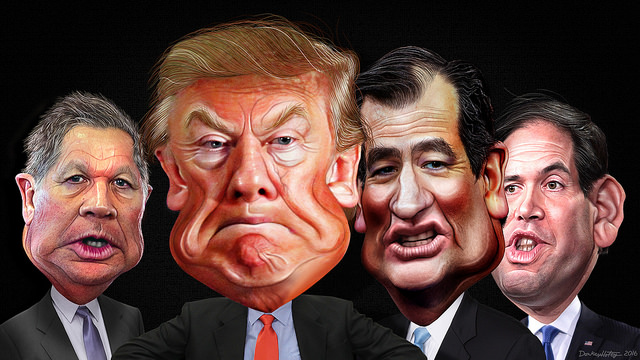
Why Do All Politicians Sound The Same?
March 22, 2016 | Post
Ever wonder why presidential candidates Bernie Sanders and Donald Trump sound so similar despite being from different political parties? Both rail against free trade, the establishment, and harken back to a mythical time in the country when there was a chicken in every pot and an American manufacturing every product we use. In the video […]

Super Tuesday: 4 Traps American Voters Need to Avoid at All Costs
March 1, 2016 | Post
It’s election season and you’re ready to vote. You’ve carefully researched the candidates and their platforms, so you’re pretty certain your vote will be an informed one. But before you cast your vote at the polls, take some time to reflect on these four cognitive biases, or traps, and how they impact your voting decisions. […]

Why Do All Politicians Sound the Same?
February 23, 2016 | Post
As the election cycle starts to heat up you may begin to realize that most politicians sound the same, except for a few rhetorical differences. Why is that? Professor Diana Thomas investigates.

What You Probably Haven't Heard About Citizens United
February 2, 2016 | Post
Did the Supreme Court decision in the case Citizens United vs. FEC really sell out democracy to corporations? Professor Bradley Smith disagrees and explains why treating corporations as persons for purposes of the law is important and beneficial for society in this Learn Liberty video.
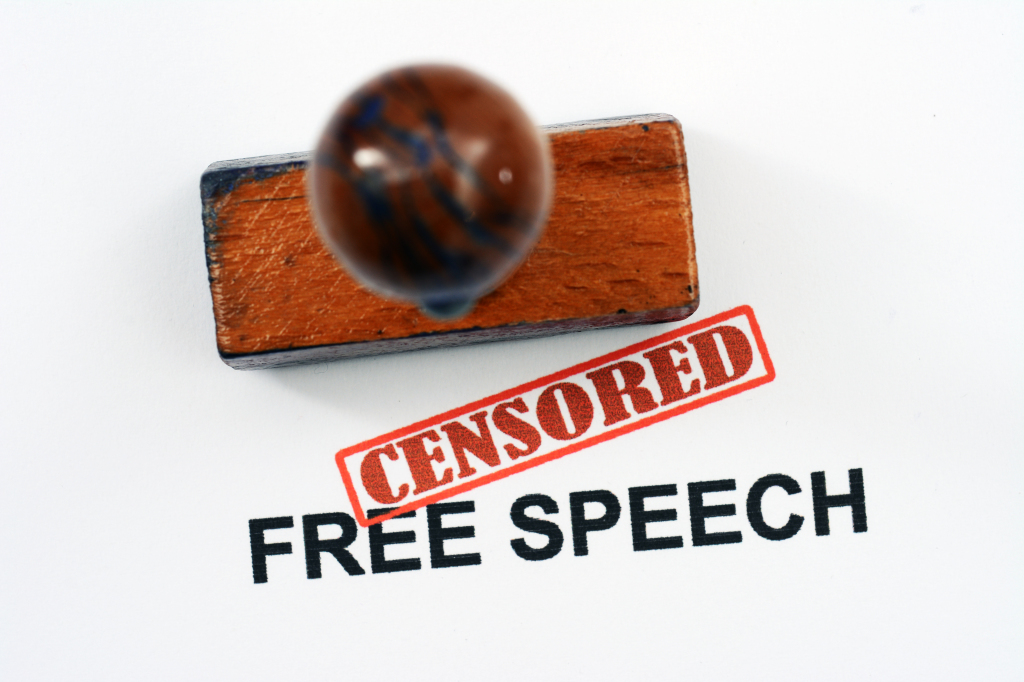
Featured On Demand Program of the Week: Citizens Divided
February 1, 2016 | Post
How much do you really know about the electoral process? In this program, we take a fresh look at elections and voting and address some of the common misconceptions. Did the Citizens United case really make corporations people? Should we ban money in politics? How can Super PACs and political ads improve democracy, while a […]
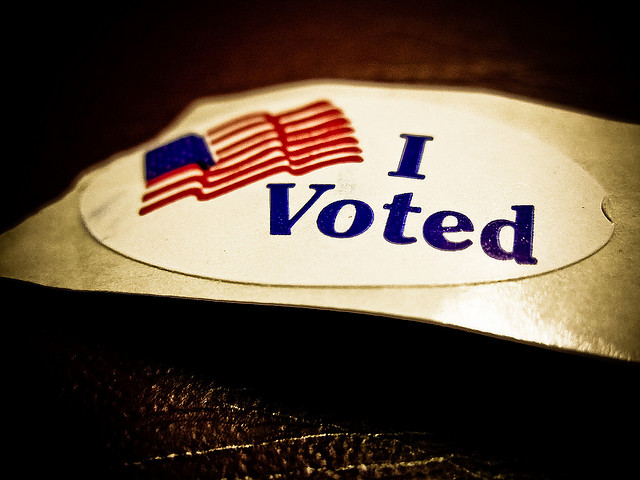
Will You Vote Well?
January 4, 2016 | Post
What should you read between now and Election Day? If you’re only going to read one political book, you should make it Jason Brennan’s The Ethics of Voting. If you’re going to read a second, I nominate Bryan Caplan’s The Myth of the Rational Voter. If you’re going to read a third, you should read […]

Discussion Question: Democracy
December 4, 2015 | Post
Some decisions, such as the selection of a government representative, are made by democratic means. However, decisions like which religion to follow are left to each person to choose for herself. Which decisions should be made by a democracy, and which decisions should be made by the individual. When should society make the distinction between […]

